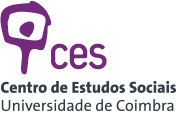CC.EDU - Grupo de Trabalho em Ciência Cidadã e Educação
Comunicação
Citizen science approaches in educational contexts: sharing experiences from a pilot initiative in the social sciences
Cláudia Pato de Carvalho
Denise Esteves
Joana Sousa
Rita Campos
CONNECT International Conference on Open Schooling #CICOS2023
Several authors argue for the need to strengthen the dialogue between scientific research and educational contexts, in particular schools. A way to do it is to create opportunities for scientists, teachers, and students to meet and exchange knowledge, experiences, and perspectives by reconfiguring schools as collaborative ecosystems -schools as part of an interconnected network linking educational contents, scientific research, and local and global realities. As such, new learning communities can emerge, where scientist, teachers and students work together focusing on the values of cooperative learning, mutual respect, collective construction of knowledge and problem-solving skills. This educational methodology is deeply connected to the concept of citizen science (CS), which has been increasingly recognised as a powerful tool for science education. As an educational strategy, allowing teachers and student to lead the research design holds a great potential for successful engagement and learning outcomes. However, the (few) examples of embedding CS in educational contexts lack a closer collaboration between schools and universities, or the active voice of children in leading the research. In this paper we will explain our methodological experiences with a pilot citizen social science project that integrated researchers and high-school students and teachers. The motivation for developing the project resulted from the perception of the low visibility, representativeness and intervention of the Social Sciences, Humanities and the Arts in initiatives that promote scientific culture. The goal was to promote a critical, inter and transdisciplinary discussion on a social sciences theme from a youth and citizen perspective. From February to May 2022, collaborative research took place with one class, in sessions held twice a month, and gathered together scientists and students, where the latter were active participants in the various stages of the scientific process in the social sciences. The chosen theme was “prejudice in Portuguese society”, and participants researched different expressions of it while using different methodological approaches of the social sciences (interviews, inquiries, documental analysis, social network analysis). Results from this first experience fed a second phase of the project, from January to April 2023, with four classes researching topics related to Environment and Interculturality. Four in-person sessions and a continuous remote support allowed students and teachers to conduct the research, again using methodological approaches of the social sciences (interviews, inquiries, documental analysis, photo-elicitation). In both cases, a final public presentation of the research results was held/is planned to promote platforms for dialogue and reflection that involved researchers working in the addressed topics, the school community, (teachers, school technicians, students) and parents or guardians.

